Filter News
Area of Research
News Topics
- (-) Composites (5)
- (-) Mercury (2)
- 3-D Printing/Advanced Manufacturing (27)
- Advanced Reactors (11)
- Artificial Intelligence (26)
- Big Data (16)
- Bioenergy (28)
- Biology (28)
- Biomedical (11)
- Biotechnology (4)
- Buildings (16)
- Chemical Sciences (15)
- Clean Water (10)
- Climate Change (26)
- Computer Science (55)
- Coronavirus (9)
- Critical Materials (4)
- Cybersecurity (12)
- Decarbonization (21)
- Element Discovery (1)
- Energy Storage (33)
- Environment (55)
- Exascale Computing (10)
- Fossil Energy (1)
- Frontier (12)
- Fusion (12)
- Grid (18)
- High-Performance Computing (16)
- Hydropower (8)
- Irradiation (1)
- Isotopes (5)
- ITER (2)
- Machine Learning (15)
- Materials (37)
- Materials Science (36)
- Microscopy (18)
- Molten Salt (1)
- Nanotechnology (15)
- National Security (17)
- Net Zero (2)
- Neutron Science (30)
- Nuclear Energy (27)
- Partnerships (8)
- Physics (16)
- Polymers (7)
- Quantum Computing (7)
- Quantum Science (19)
- Security (6)
- Simulation (6)
- Space Exploration (8)
- Summit (16)
- Sustainable Energy (33)
- Transformational Challenge Reactor (2)
- Transportation (22)
Media Contacts

The presence of minerals called ash in plants makes little difference to the fitness of new naturally derived compound materials designed for additive manufacturing, an Oak Ridge National Laboratory-led team found.

Oak Ridge National Laboratory scientists designed a recyclable polymer for carbon-fiber composites to enable circular manufacturing of parts that boost energy efficiency in automotive, wind power and aerospace applications.
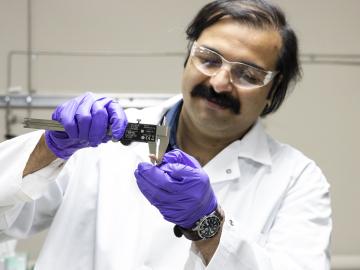
Chemical and environmental engineer Samarthya Bhagia is focused on achieving carbon neutrality and a circular economy by designing new plant-based materials for a range of applications from energy storage devices and sensors to environmentally friendly bioplastics.
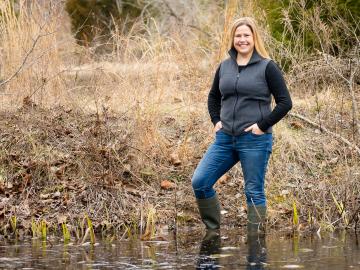
Spanning no less than three disciplines, Marie Kurz’s title — hydrogeochemist — already gives you a sense of the collaborative, interdisciplinary nature of her research at ORNL.
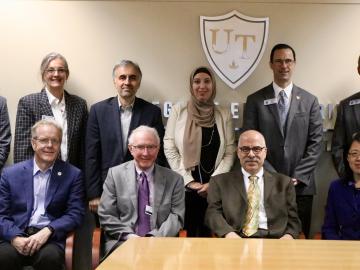
ORNL and The University of Toledo have entered into a memorandum of understanding for collaborative research.
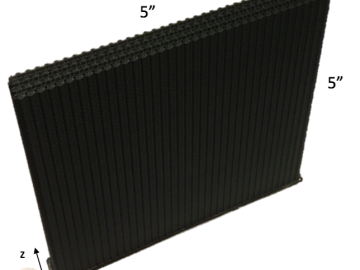
A team including Oak Ridge National Laboratory and University of Tennessee researchers demonstrated a novel 3D printing approach called Z-pinning that can increase the material’s strength and toughness by more than three and a half times compared to conventional additive manufacturing processes.
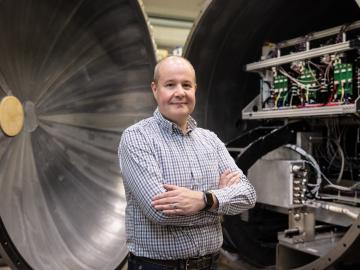
Sometimes solutions to the biggest problems can be found in the smallest details. The work of biochemist Alex Johs at Oak Ridge National Laboratory bears this out, as he focuses on understanding protein structures and molecular interactions to resolve complex global problems like the spread of mercury pollution in waterways and the food supply.




